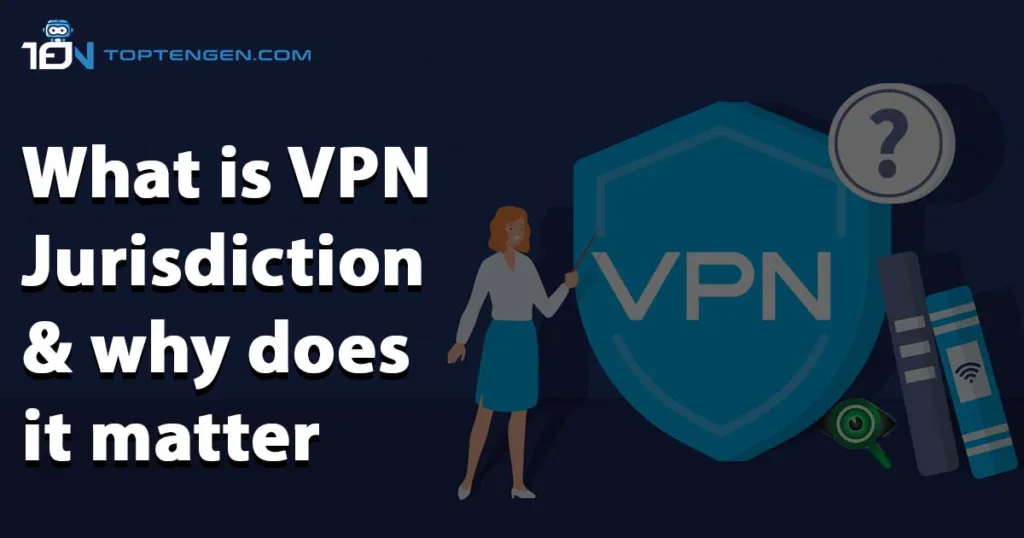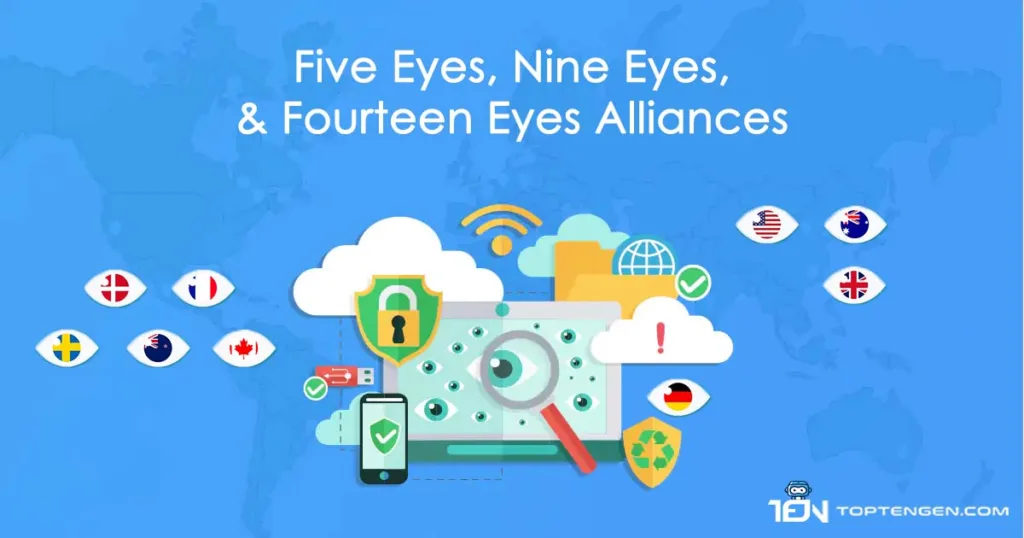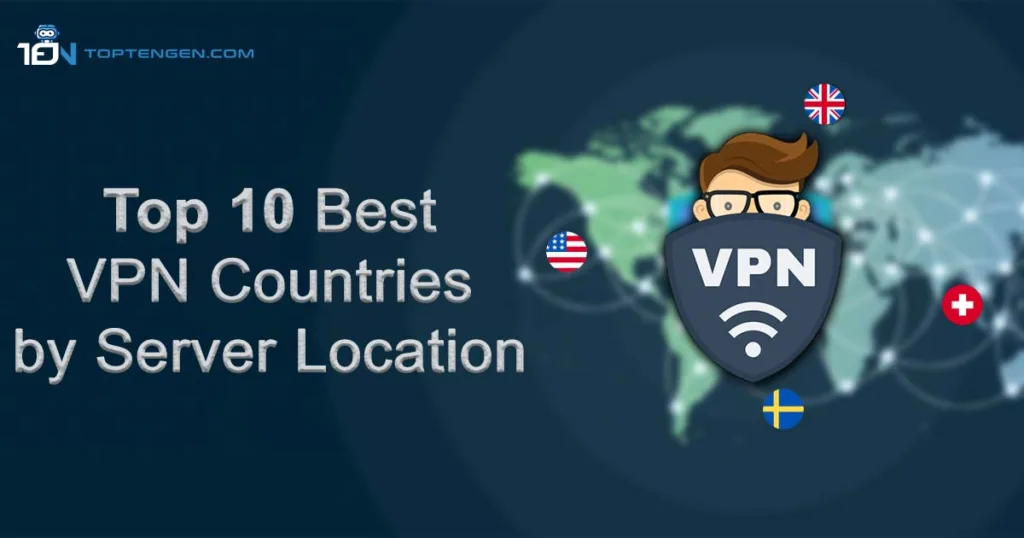The VPN service is subjected to constant surveillance, data retention, and data sharing laws. The greatest and most powerful nations are the members of the secretive intelligence-sharing agreements known as Five Eyes, Nine Eyes, and Fourteen Eyes Alliances. These countries work together to collect data on a larger scale and share it among themselves. The information is collected through text messages, electronic documents, location, phone calls, and all the other means. And in terms of privacy, these countries are not considered good enough to base a VPN company.
So, if your VPN company is based in one of the countries that are members of Alliance, you will be subjected to data leaks. Therefore, one of the main features of a quality VPN is its no-log policy. However, not all of them fulfill this privacy policy. So, let’s dig deeper and know the details about VPN jurisdiction.
What is VPN Jurisdiction?

VPN jurisdiction refers to the country where the VPN provider is registered or headquartered. In layman’s terms, it’s the legal home base of the VPN. The legal system of the country greatly influences the privacy policies, rules, and regulations of the VPN provider.
As the registration of the business entity is a compulsion so there is no escaping this conundrum. The interesting factor is that not all jurisdictions are made equal. Countries with strict privacy laws can safeguard your data while others don’t do it. Also, the level of surveillance by the government varies from country to country. An intrusive jurisdiction force VPN provider to monitor and collect the log information of users. In brief, it’s not always what the VPN provider is saying but it’s also about the laws in the jurisdiction are saying.
Important Note: VPN Jurisdiction is different from the location of its servers. As VPNs have a large fleet of servers in various countries across the globe but every VPN will have a single jurisdiction. This is the country where its legally based and is subjected to the jurisdiction of that particular country.
Five Eyes, Nine Eyes, and Fourteen Eyes Alliances

In global surveillance, Five Eyes, Nine Eyes, and Fourteen Eyes Alliances play an important rule. Lets explore all the key details, implications, and impact of VPN jurisdiction.
Five Eyes Alliance
The Five Eyes Alliance is an intelligence coalition that can be traced back to World War 2. The members of this alliance include the countries like US, UK, Canada, Australia, and New Zealand. The coalition was initially devised as a partnership between the United States and United Kingdom. But now all the members work together to collect, monitor and analyze the information domestically and internationally.
The members of the alliance have completely agreed to not spy on each other as adversaries, but the leak reports show that nations do monitor each other citizens and share intelligence among them. Along with sharing surveillance data the members of the alliance also work to enforce data retention laws.
Nine Eyes Alliance
The Nine Eyes Alliance is an extension of the Five Eyes Alliance. It consists of a larger group of countries that cooperates to share intelligence. This alliance includes the Five Eyes Alliance along with France, Denmark, Norway, and the Netherlands. It is an extension of the Five Eyes agreement that gathers and distributes mass surveillance data. The additional countries don’t essentially share the same level of cooperation as the Five Eyes members, but they do have access to massive information and shared resources.
Fourteen Eyes Alliance
The Fourteen Eyes Alliance is a further expansion of Nine Eyes Alliance that includes countries like Germany, Italy, Sweden, Spain, and Belgium. The official name of the Fourteen Eyes Alliance is SIGINT Seniors of Europe (SSEUR) and is primarily designed to exchange military intelligence but later included everyday surveillance. Though they are not in close bond with five eyes members but still gain the edge to access resources and intelligence that is not previously available.
Why VPN Jurisdiction matters?
In this digital world, VPN jurisdiction matters a lot to protect the security and privacy of users. To choose the best VPN option it is important to be aware of the jurisdictions governing :
- Location of your chosen VPN provider
- VPN service legal base operation
The member of Five Eyes, Nine Eyes, and Fourteen Eyes are involved in continuous data sharing which undermines the privacy of VPN users. The location of VPN service provider affects the privacy of users as in some regions it is legally obligated to share data with the government. Therefore it is important to choose VPN with a zero-logging policy to minimize the amount of data that can be handed to the government.
Top 10 Best VPN Countries by Server Location

The location where the VPN is based is of integral importance and all the privacy policies and security measures are determined by this. The best VPN Jurisdictions of the VPN provider determines what the VPN can and cannot do . The best place for the VPN to be based is Switzerland . As Switzerland is privacy focused country and many of the top-tier VPN are either based in the country or have servers in that location.
